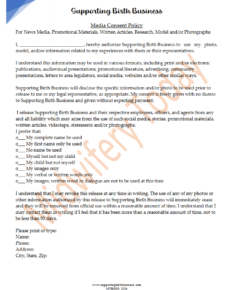
International Code of Ethics For Midwives
Editor’s note: This article first appeared in Midwifery Today, Issue 40, Winter 1996.
Subscribe to Midwifery Today Magazine
The International Confederation of Midwives invites your comments on its Code of Ethics. Please answer the following questions and address your response to Secretary General, International Confederation, 10 Barley Mow Passage, Chiswick, London W4 4PH, England: 1. Are there any noticeable gaps in the ICM Code as written? 2. Are there any words or phrases in the ICM Code that are confusing or inappropriate? Please list them and explain. 3. If you have had the opportunity to use the ICM Code, please comment on its usefulness and give examples.
Preamble
The aim of the International Confederation of Midwives (ICM) is to improve the standard of care provided to women, babies and families throughout the world through the development, education, and appropriate utilization of the professional midwife. In keeping with its aim of women’s health and focus on the midwife, the ICM sets forth the following code to guide the education, practice and research of the midwife. This code acknowledges women as persons, seeks justice for all people and equity in access to health care, and is based on mutual relationships of respect, trust, and the dignity of all members of society.
The Code
-
Midwifery Relationships
- Midwives respect a woman’s informed right of choice and promote
the woman’s acceptance of responsibility for the outcomes of her choices. - Midwives work with women, supporting their right to participate
actively in decisions about their care, and empowering women to speak for themselves
on issues affecting the health of women and their families in their culture/society. - Midwives, together with women, work with policy and funding agencies
to define women’s needs for health services and to ensure that resources are fairly
allocated considering priorities and availability. - Midwives support and sustain each other in their professional
roles, and actively nurture their own and others’ sense of self-worth. - Midwives work with other health professionals, consulting and
referring as necessary when the woman’s need for care exceeds the competencies of
the midwife. - Midwives recognize the human interdependence within their field
of practice and actively seek to resolve inherent conflicts.
- Midwives respect a woman’s informed right of choice and promote
-
Practice of Midwifery
- Midwives provide care for women and childbearing families
with respect for cultural diversity while also working to eliminate harmful practices
within those same cultures. - Midwives encourage realistic expectations of childbirth by women
within their own society, with the minimum expectation that no women should be harmed
by conception or childbearing. - Midwives use their professional knowledge to ensure safe birthing
practices in all environments and cultures. - Midwives respond to the psychological, physical, emotional and
spiritual needs of women seeking health care, whatever their circumstances. - Midwives act as effective role models in health promotion for
women throughout their life cycle, for families and for other health professionals. - Midwives actively seek personal, intellectual and professional
growth throughout their midwifery career, integrating this growth into their practice.
- Midwives provide care for women and childbearing families
-
The Professional Responsibilities of Midwives
- Midwives hold in confidence client information in order to protect
the right to privacy, and use judgment in sharing this information. - Midwives are responsible for their decisions and actions, and are accountable
for the related outcomes in their care of women. - Midwives may refuse to participate in activities for which they hold
deep moral opposition; however, the emphasis on individual conscience should not
deprive women of essential health services. - Midwives participate in the development and implementation of health
policies that promote the health of all women and childbearing families.
- Midwives hold in confidence client information in order to protect
-
Advancement of Midwifery Knowledge and Practice
- Midwives ensure that the advancement of midwifery knowledge is based
on activities that protect the rights of women as persons. - Midwives develop and share midwifery knowledge through a variety of
processes, such as peer review and research. - Midwives participate in the formal education of midwifery students and
midwives.
- Midwives ensure that the advancement of midwifery knowledge is based





















